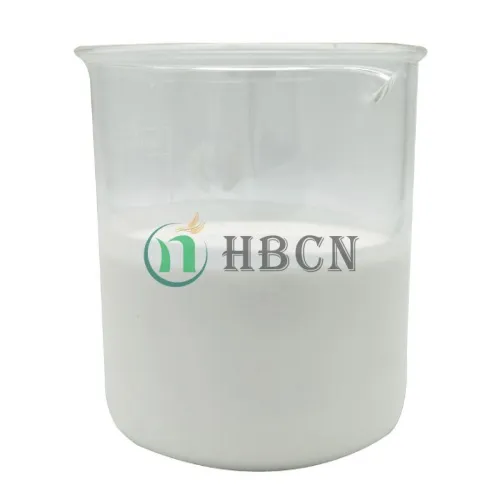
نوفمبر . 27, 2024 10:07 Back to list
Explore the Benefits of Leptospermone and Mesotrione for Agricultural Use
Buying Leptospermone and Mesotrione Understanding Their Uses and Benefits
In the ever-evolving world of agriculture, the search for effective herbicides to manage unwanted vegetation while promoting crop health is critical. Among the myriad of options available, two chemicals have garnered attention in recent years Leptospermone and Mesotrione. This article will explore these compounds, their applications, benefits, and considerations for agricultural use.
What are Leptospermone and Mesotrione?
Leptospermone is a natural product derived from the leaves of certain species of the Myrtaceae family, particularly from the genus *Leptospermum*. It functions as a bioherbicide, offering a more ecologically friendly alternative to synthetic herbicides. On the other hand, Mesotrione is a synthetic herbicide that belongs to the triketone class and is widely recognized for its effectiveness against broadleaf weeds in corn and other crops.
Both compounds operate by inhibiting specific enzymatic pathways in plants, leading to reduced growth and eventual death of the weeds they target. Leptospermone disrupts the production of certain pigments within the plant, causing a process known as bleaching. Mesotrione, similarly, inhibits the enzyme 4-hydroxyphenylpyruvate dioxygenase (HPPD), which is crucial for carotenoid biosynthesis and results in chlorosis.
Applications in Agriculture
The application of Leptospermone and Mesotrione typically occurs in post-emergence weed management, where farmers target already germinated weeds without harming the crop.
For Leptospermone, its natural origin makes it appealing for organic farming practices and regions where environmental sustainability is a priority. Farmers can utilize it in conjunction with other pest management strategies to reduce chemical residues and promote healthier ecosystems.
Mesotrione is widely utilized in conventional farming due to its efficiency in controlling a broad spectrum of weeds, including resistant biotypes. It is particularly effective in corn, where it can be applied pre- and post-emergence, providing versatility to farmers in managing weed populations.
Benefits of Using Leptospermone and Mesotrione
1. Targeted weed control Both herbicides provide effective control over specific weed species without harming the surrounding crops. This allows growers to maintain high yields while managing competition.
buy leptospermone mesotrione

2. Reduced environmental impact Leptospermone’s natural origins lend it a profile that aligns with sustainable farming practices. With increasing consumer demand for organic products, leveraging such bioherbicides can be an effective marketing strategy for growers.
3. Resistance management The unique modes of action employed by Leptospermone and Mesotrione can help in managing herbicide-resistant weed populations. Rotating herbicides with different action mechanisms is crucial in sustainable weed management.
4. Improved crop health By minimizing weed competition, both herbicides allow crops to thrive, leading to better growth, higher productivity, and optimized resource usage.
Considerations Before Purchase
While the benefits are significant, farmers should also consider a few key factors before purchasing Leptospermone and Mesotrione
1. Regulatory compliance It is essential to ensure that both products are approved for use in the specific region or country of operation. Regulatory frameworks may vary, and adherence is crucial for legal and safety reasons.
2. Application timing and method Understanding the specific timings and methods for applying these herbicides is critical. Inappropriate application can lead to reduced effectiveness or, worse, crop damage.
3. Cost vs. benefits Assessing the cost-effectiveness of these herbicides relative to their benefits is essential. Farmers should weigh the potential increase in yield and crop quality against the investment in these herbicides.
4. Environmental conditions Each herbicide has specific environmental tolerances. Factors such as soil type, weather conditions, and the presence of sensitive species should be accounted for.
Conclusion
Buying Leptospermone and Mesotrione can be a strategic move for farmers looking to enhance their weed management practices. By understanding their applications, benefits, and necessary considerations, growers can make informed decisions that align with their agricultural goals. With the ongoing challenges of weed resistance and environmental sustainability, utilizing effective herbicides like these can help secure a productive and eco-friendly farming future.
-
Kasugamycin Fungicide: Efficient Bacterial & Fungal Control
NewsAug.02,2025
-
Emamectin Benzoate: AI-Optimized Pest Control Solution
NewsAug.01,2025
-
Best Abamectin 95% | Top Pesticide for Crop Protection
NewsJul.31,2025
-
Insecticide Spirotetramat 11% + Thiacloprid 11% SC at Good Price
NewsJul.30,2025
-
Best Abamectin SDS - Premium Quality & Reliable Safety Data
NewsJul.29,2025
-
Agrochemicals Pesticides Solutions for Sustainable Farming
NewsJul.29,2025
